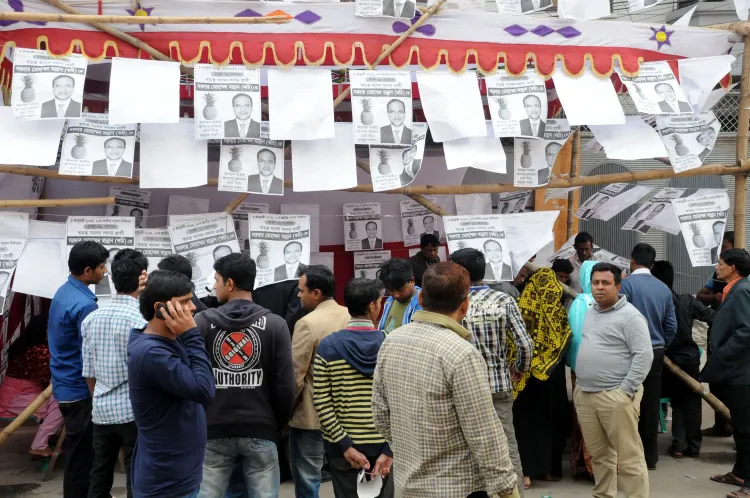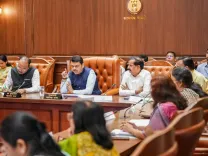Why Did the Election Commission of Bangladesh Remove the Awami League's 'Boat' Symbol from Its Website?

Synopsis
Key Takeaways
- The Election Commission removed the Awami League's 'boat' symbol.
- This action is viewed as a challenge to the party's political status.
- The interim government has imposed a ban on all party activities.
- Political analysts see this as part of a vendetta against former PM Hasina.
- The move raises concerns about the future of democracy in Bangladesh.
Dhaka, July 16 (NationPress) – The Election Commission (EC) of Bangladesh has taken the significant step of removing the election symbol associated with the Awami League, the party of former Prime Minister Sheikh Hasina, from its official website. This action is viewed as part of a broader effort to challenge the party's longstanding political presence in the nation.
An official from the EC Secretariat confirmed that the removal of the 'boat' symbol was executed following directives from higher authorities, as reported by local media outlets.
Just last week, Election Commissioner Abdur Rahmanel Masud asserted that the Awami League could keep its boat symbol, as it has never faced a ban. He noted, 'The boat symbol was designated to a party, but symbols are the property of the Election Commission. Should a party dissolve, its symbol remains with the EC and can be reassigned. We do not eliminate symbols.' This statement was covered by the news outlet bdnews24.
The National Citizen Party (NCP) has been vocally advocating for the removal of the Awami League's symbol from the list of officially recognized election symbols.
On May 12, the interim government led by Mohammad Yunus issued a gazette notification prohibiting all activities connected to the Awami League and its affiliated organizations. This ban, enacted under the Anti-Terrorism Act, will remain in effect until the completion of trials against the party and its leaders at Bangladesh's International Crimes Tribunal (ICT).
The restrictions encompass all party operations, including publications, media campaigns, online initiatives, public gatherings, and conferences.
Political analysts interpret these recent developments as an extension of the ongoing political vendetta orchestrated by Yunus's interim government against former PM Hasina and her allies, with the underlying aim of preventing the Awami League from participating in upcoming national elections.
The abrupt exit of Hasina last August was perceived globally as a significant blow to democracy in Bangladesh. Furthermore, the interim government has faced substantial backlash for allegedly providing refuge to extremist Islamic groups.









